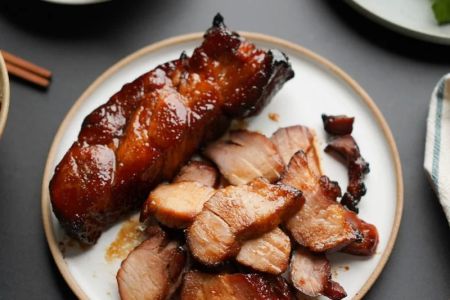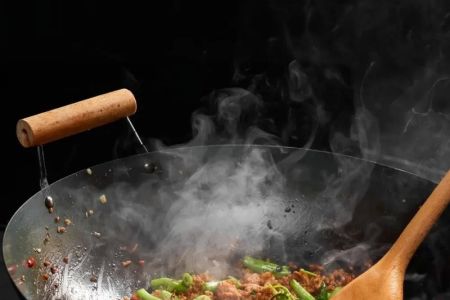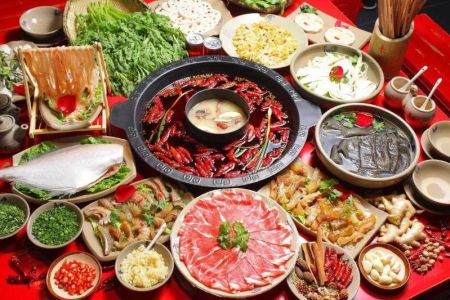What Are the Real Concerns About Rats in Chinese Restaurants?
When it comes to dining out, there are always some questions floating around about the cleanliness and hygiene standards of restaurants. One question that seems to resurface time and time again is: "Do Chinese restaurants use rats?" It's a provocative question, and one that often stirs up concern, especially for those unfamiliar with the realities of the restaurant industry. I’ve heard this question countless times, so I decided to dig into it myself to uncover the truth behind the rumors. Let’s break this down from a place of logic, facts, and some personal stories that might help shed light on the matter.
The Rumors: Are They True?
First, let's address the most common rumor: rats in Chinese food. The idea that rats or any other rodents are used as ingredients in Chinese cuisine is completely false. I’ve visited numerous Chinese restaurants, including some of the most popular spots in the U.S., and I can tell you that these rumors are just that—rumors. No credible evidence supports the claim that rats or other pests are intentionally used in any kind of food preparation, whether in Chinese cuisine or any other culinary tradition.
Understanding Food Safety in the Restaurant Industry
To better understand where these rumors might come from, we need to take a look at food safety standards in restaurants. Every reputable restaurant, including Chinese restaurants, is bound by strict food safety regulations to ensure that food is prepared, stored, and served in a hygienic environment. Health inspectors conduct regular inspections to ensure that businesses comply with these standards. For instance, the USDA and the Food and Drug Administration (FDA) enforce guidelines that prevent any form of contamination, including rats, in food production.
It’s important to note that Chinese restaurants, like all restaurants in the U.S., are subject to these same health regulations. In fact, many Chinese restaurants are diligent about maintaining clean kitchens and upholding food safety standards. If rodents or any form of contamination were found, these establishments would face significant fines or even closure. In my experience, most Chinese restaurant owners and chefs are passionate about their food and take cleanliness seriously.
What About the Stereotypes Surrounding Chinese Food?
The stereotype about rats in Chinese restaurants may have some roots in cultural misunderstandings. Chinese cuisine, with its wide range of flavors and unique dishes, is sometimes viewed with suspicion by people who are less familiar with it. People unfamiliar with the nuances of Chinese cooking might be startled by unfamiliar ingredients, leading to misconceptions. However, these ingredients are perfectly safe and commonly used in other culinary traditions around the world.
Personal Story: Dining Out and Food Safety
Let me share a personal experience with you. A few years ago, I visited a well-known Chinese restaurant in New York City. As I sat down and looked around, I noticed how meticulously clean the place was. The staff was friendly and attentive, and the kitchen area was spotless. After my meal, I asked the manager about the cleaning processes they follow to maintain such a high level of cleanliness. He explained that they have regular inspections and ensure that food preparation areas are sanitized daily. This was a great reminder that most Chinese restaurants adhere to strict standards of hygiene and cleanliness.
Why Do These Rumors Persist?
Despite the regulations and the efforts made by Chinese restaurants to maintain high standards of hygiene, rumors about rats and other pests continue to circulate. So why do these myths persist? A big part of the issue lies in misinformation and sensationalism. Some media outlets and individuals are more than willing to latch onto any negative stories to attract attention, even if those stories aren't based on facts. Additionally, cultural differences and unfamiliarity with Chinese cuisine often lead to misinterpretations. It's easy for someone to assume the worst when they're unfamiliar with a particular type of food.
Another reason might be the occasional reports of restaurant health violations, which, while rare, can sometimes make their way into the media. These reports often focus on individual incidents rather than representing the industry as a whole. It’s essential to remember that one bad apple doesn’t spoil the whole bunch. The vast majority of Chinese restaurants in the U.S. are committed to maintaining high food safety standards.
How to Choose a Safe Chinese Restaurant
Now that we’ve cleared up the misconceptions about rats in Chinese restaurants, let's talk about how you can ensure you're dining in a safe, clean restaurant. Here are some tips that might help you feel more confident about where you're eating:
- Check Health Inspection Scores: Most restaurants are required to display their health inspection scores. These are a great indication of how well a restaurant is maintaining its hygiene standards.
- Read Reviews: Online reviews are often a good source of information. Check out what other customers have said about the cleanliness and food quality at a restaurant.
- Observe the Restaurant: When you enter a restaurant, take a quick glance around. Is the dining area clean? Does the kitchen appear tidy when you peek inside? These visual cues can tell you a lot about the restaurant's overall cleanliness.
- Ask the Staff: Don’t be afraid to ask the restaurant staff about their food safety practices. A good restaurant will be happy to explain how they ensure the quality of their food.
The Bottom Line: Enjoy Your Meal with Peace of Mind
The next time you visit a Chinese restaurant, you can rest easy knowing that the rumors about rats are just that—rumors. The majority of Chinese restaurants are committed to providing safe, clean, and delicious food. If you're ever in doubt, remember to do your research and ask questions. With proper precautions and a little knowledge, you can confidently enjoy your meal without worrying about the myths that have been perpetuated for far too long.






![Top Chinese Restaurants for Authentic Cantonese Cuisine in [Your City]](https://img.gochinarose.com/d33/2507/4157910400_450x300.webp)
